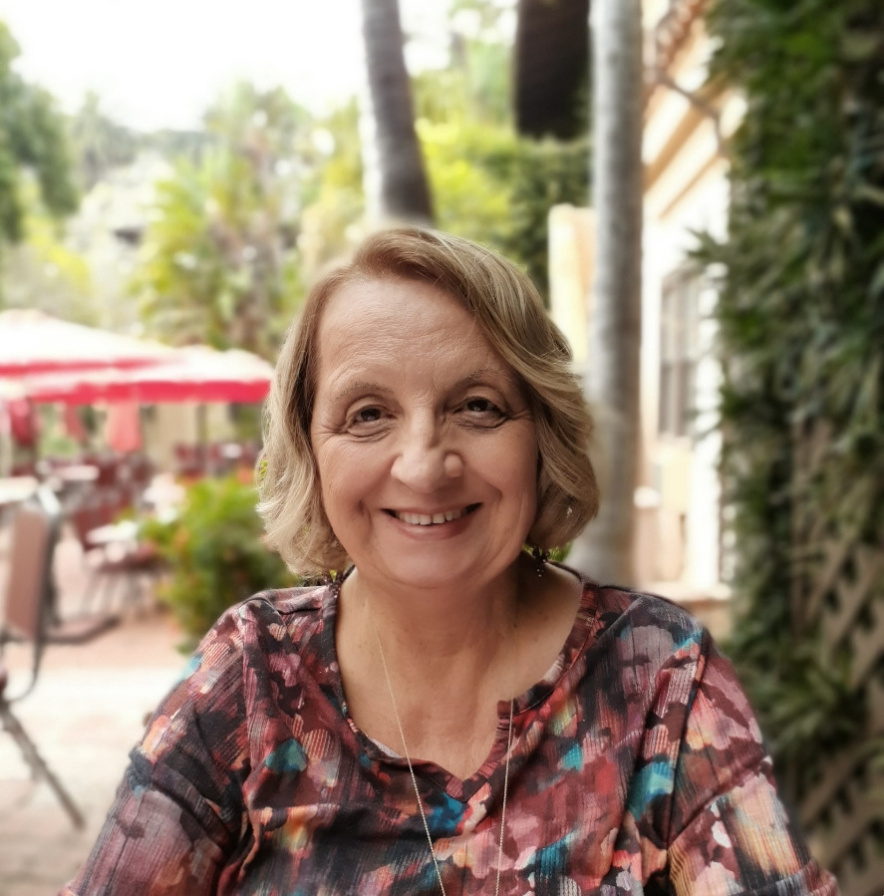The Hardest Year is available now:
Carole Wagener, a graduate of the University of Wisconsin, ended her fifty-year career as a physical therapist in 2018. After surviving breast cancer in 2008, she began journaling which sparked her enthusiasm to become a writer. In 2014, Carole became a charter member of Coastal Dunes California Writers Club which has published her short stories and poetry in their anthologies. She lives with her husband, William, on the Central Coast of California.
Read what Military Writers Society of America has to say about The Hardest Year.
Listen to a interview with Carole here!

"Carole and Bill’s hardest year is one for the history books. Carole’s saved correspondence between her and her husband, Bill, exemplifies the raw emotions, new and fleeting love, and moral injury that soldiers endure. Bill’s heroic time at war and Carole’s tumultuous encounters on the UW-Madison campus during the riots and protests parallel each other as they maneuver through the infancy of their marriage. Through their letters, you get a sense of Bill’s comrades jeering him along and his values and ethos winning that war, but in the process, losing a sense of being and his love of life. This book is a true transportation into the Vietnam era both from a civilian and a military lens."
-Laura Naylor Colbert
Iraq war veteran and author of Sirens:
How to Pee Standing Up
A selection of Carole's works has been published by Coastal Dunes Writers Group
PRESERVING YOUR VETERAN’S STORY
By Carole Wagener
A veteran’s letters are a rich source that can be mined for gold when writing their stories. Using these first-person accounts, the events of the time when they were written should be reasonably historically accurate. Many veterans wrote letters home to their sweethearts or their parents who saved them. Some brought home journals, tucking them away, while today’s soldiers communicate by email or text, which may be harder to keep.
A dusty shoebox filled with 300 hand-written letters from my husband’s time in Vietnam (1968-1969) provided the backbone of our book, The Hardest Year: A Love Story in Letters During the Vietnam War. William took scads of black-and-white photos during his time in ‘Nam. We chose thirty photos for the book depicting the lives of the Wageners vs. the Vietnamese lives.
While writing my book, I used quotation marks around the body of the letters instead of italics, making it easier for the reader’s eyes. As my husband held the copyright to his letters, he became my coauthor and wrote
Chapter 18, “The Hardest Journey Home.”
I corrected the punctuation and spelling errors in the letters except in Chapter 13, “Geez, Louise.” A misspelled word had led to a humorous misunderstanding, with me believing my newlywed husband was having an affair, so it was important to keep that misspelling.
In my Author’s Note, I included this statement. “The vernacular is accurate to that time using words that are no longer politically correct. The letters, based on actual events, may have been compressed … Some names and identifying characteristics were changed.”
But did I find the gold? Oh yes, I did. I entered the book into my first writing contest with the 2023 International Book Awards, and surprisingly, I came in as a gold medal finalist in military history, possibly because of quotations from the U.S. Department of State publications.
Perhaps you have your grandfather’s WWI journal or your father’s WWII letters stored in the attic. To start, take a writing class at a community college or online, join a writers’ club, or attend writing conferences.
For extra help, I recommend joining the Military Writers Society of America. You don’t have to be a veteran to join. MWSA offers free writing courses and has an annual book contest. I didn’t win their contest, but if you visit Goodreads.com, you can read a review from one of their judges who loved The Hardest Year. When marketing a book, good reviews are priceless.
The Veterans Breakfast Club Happy Hour meets on Zoom every Monday at 4 p.m. PST. It’s a supportive and educational organization for veterans and their families where Todd De Pastino interviews military authors. Contact todd@veteransbreakfastclub.org for a free magazine or membership information.
So, write to preserve your veteran’s story and include some photographs. Your family might not understand now but will thank you later for leaving this unique legacy behind.





